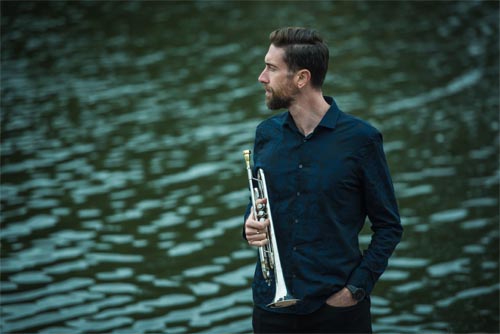
[Some computers might ask you to allow the music to play on this page]
Andre Canniere by Howard Lawes
|

Andre Canniere
Photo by Monika Jakubowska
Trumpet and flugelhorn player Andre Canniere is an American from Pennsylvania, married to a British wife. His band for the album Ghost Days has Tori Freestone on tenor sax, Brigitte Beraha singing and speaking vocals, Rick Simpson (piano and keyboards), Tom Farmer (bass) and Andrew Bain (drums). The album highlights the poetry of Rebecca Lynch and Malika Booker.
A video introduction to the album featuring the tune Colours.
While the history of jazz with poetry and poetry with jazz is interesting, the results of such collaborations have been somewhat uneven. In the USA one of the most famous African-American literary figures is Langston Hughes and in a blog from 2014, Rebecca Gross wrote: "Langston Hughes was never far from jazz. He listened to it at nightclubs, collaborated with musicians from Monk to Mingus, often held readings accompanied by jazz combos, and even wrote a children’s book called The First Book of Jazz."
In the UK, the poet Philip Larkin, who declined the role of Poet Laureate, was a jazz critic for the Daily Telegraph newspaper and is famously quoted as saying: "I could live a week without poetry but not a day without jazz". While Larkin was a poet who loved jazz, Hughes actually transformed jazz into words as exemplified in his poem The Weary Blues which has the first line "Droning a drowsy syncopated tune ..."
Langston Hughes with Weary Blues.
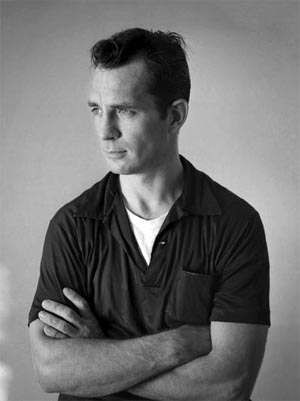
While much of Hughes’ poetry was concerned with the plight of being an African-American in a racist society, something many jazz musicians would be equally familiar with, in the post WW2 years a generation of white poets rebelled against the conventions of mainstream American life and writing and became known as ‘The Beat Poets’. These angry young men took inspiration from jazz music, adapting the inherent freedom of the music to develop an unfettered, spontaneous form of poetry, Allen Ginsberg's poem Howl begins: "I saw the best minds of my generation destroyed by madness, starving hysterical naked, dragging themselves through the negro streets at dawn looking for an angry fix,". Another of the Beat Poets, Jack Kerouac wrote the novel On the Road (1957), which is considered to be the quintessential characterisation of the disillusionment of a generation in post war USA.
Jack Kerouac
Jack Kerouac and Beat.
In the UK the relationship between jazz and poetry was rather different. The pacifist poet Christopher Logue collaborated with drummer Tony Kinsey to release an album in 1959 called Red Bird Jazz and Poetry on the Argo label, which was adapted from the love poems of Pablo Neruda with music by Tony Kinsey and Bill Le Sage. Another Argo release in 1964 called Poetry and Jazz in Concert featured the Michael Garrick Quintet with poetry read by Adrian Mitchell and Dannie Abse. With Michael Garrick was Joe Harriott who became better known for his free improvisations on alto saxophone, and trumpeter Shake Keane, who also composed poetry.
Pals from the 1964 recording.
Michael Garrick continued with his quintessentially British style of jazz until he died in 2011 having just completed Home Thoughts, an album with singer Nette Robinson featuring the poetry of Robert Browning, William Shakespeare and William Blake. His Lyric Ensemble included Tony Woods (alto saxophone), Matt Ridley (bass) and Chris Nickolls (drums).
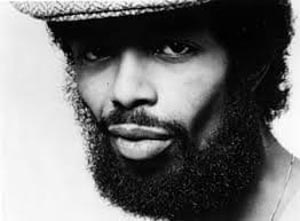
In the 1960s, The New Departures Quartet featuring Stan Tracey (piano), the wonderful Bobby Wellins (tenor saxophone), Jeff Clyne (double bass) and Laurie Morgan (drums) performed with poet Michael Horowitz and then (with Morgan replaced by Jackie Dougan) proceeded to release in 1965 the widely praised jazz suite, Under Milk Wood inspired by Dylan Thomas's poetic story of Wales.
While the 1950s and ‘60s seem to have been a pinnacle of the jazz poetry movement there continue to be significant artists attracting attention from time to time. One of these, American Gil Scott-Heron continued the campaign against racism into the 1970s and his song/poem accompanied by percussion The Revolution Will Not Be Televised was a serious yet amusing denunciation of many aspects of American society which earned him the sobriquet "godfather of rap". Scott-Heron sometimes collaborated with pianist Brian Jackson and their album From South Africa to South Carolina includes the anthemic, anti-apartheid song Johannesburg.
Gil Scott-Heron
Another track from the album A Toast to the People was reprised by Gregory Porter accompanied by Brian Jackson for BBC Music in 2017:
Jazz and poetry continue to be with us today in a variety of forms, although they might not be popularised, for example Snowpoet (click here) or Blazing Flame Quintet (click here).
Ghost Days is Andre Canniere's second album motivated by poetry. The first, Darkening Blue, was inspired by the German born but American resident Charles Bukowski and Bohemian-Austrian poet Rainer Maria Rilke.
Here is a video of Going Blind from The Darkening Blue. On this album the musicians are: Andre Canniere (trumpet); Brigitte Beraha (voice); Tori Freestone (tenor saxophone); Ivo Neame (piano, keyboards, accordion); Michael Janisch (electric & double bass); TedPoor (drums).
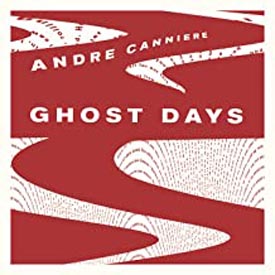
This time, for Ghost Days, he has chosen two academics; Rebecca Lynch is Artist in Residence in the Department of Informatics at King'sCollege, London while Malika Booker has recently been the Douglas Caster Cultural Fellow at the University of Leeds.
There are three poems from each of them and while the words "ghost days" occur in Rebecca Lynch's poem Colours. The term has also been used to describe the days that were lost in 1752 when Britain transferred from the Julian to the Gregorian calendar. A theme of loss runs through the whole album and while poems themselves deal with difficult subjects, the music serves to lighten the mood. The one poem that deals with birth, Arrival, describes the feelings of an expectant father and with the words "I saw a man naked and unsure, rolling daddy around his tongue, preparing like a raw trumpeter, stretching abstract notes, creating jazz" might be a metaphor for the creation of the whole album.
Listen to Arrival:
The poem Colours describes love-making but clearly something is wrong: "we would call this (the world would call this) a sin", and 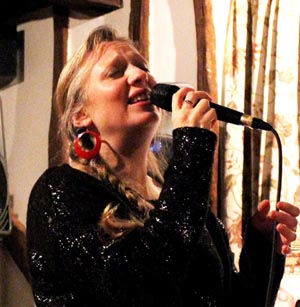 Erasure is particularly anguished dealing as it does with a mother speaking of her aborted child, "There is no grief. You are my silence." One More Down is about a missing soldier with fate unknown while My Star also deals with uncertainty saying goodbye "You're my star, You're my star, So far".
Erasure is particularly anguished dealing as it does with a mother speaking of her aborted child, "There is no grief. You are my silence." One More Down is about a missing soldier with fate unknown while My Star also deals with uncertainty saying goodbye "You're my star, You're my star, So far".
The poems are delivered beautifully by Brigitte Beraha using a combination of spoken word, song and vocal improvisation, the band sounds great changing from ensemble playing to solos as the mood of each piece dictates, with Andre Canniere particularly effective on trumpet and flugelhorn, instruments that are ideally suited to the emotional messages in the words.
Brigitte Beraha
The one track without words is the final track of the album which is called Endure and has the feeling of an anthem for hope, clearly written to encourage those who have lost something - that life will get better in time. All the music is written and arranged by Andre Canniere and he has obviously explored music genres other than jazz to feed his imagination, as we have funky grooves, rock, and melodies that will certainly stay in the mind.
Listen to Endure:
While many song lyrics are, in general, relatively undemanding these poems are really quite challenging, particularly given the present climate of global pandemic, and having read the words and heard the music listeners may conclude that it is the words which are the more powerful. Looking back over the history of jazz poetry this was usually the case, particularly in the USA, where the genre was used to convey messages of discrimination and sadness. Clearly Andre Canniere has been moved by the words to create some beautiful music and he has done us a great service in bringing this artform to our attention.
Click here for details of the album Ghost Days and to listen to samples.
Click here for Andre Canniere's website.
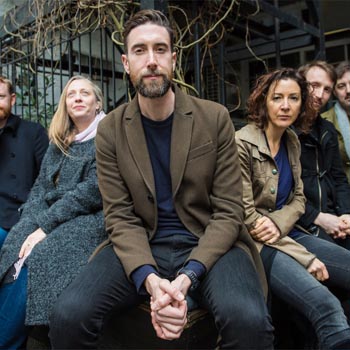
Other pages you might find of interest :
© Sandy Brown Jazz 2020
Click HERE to join our mailing list